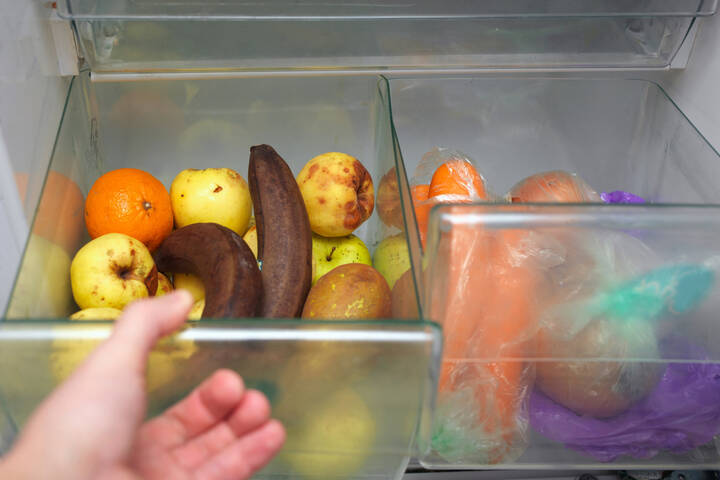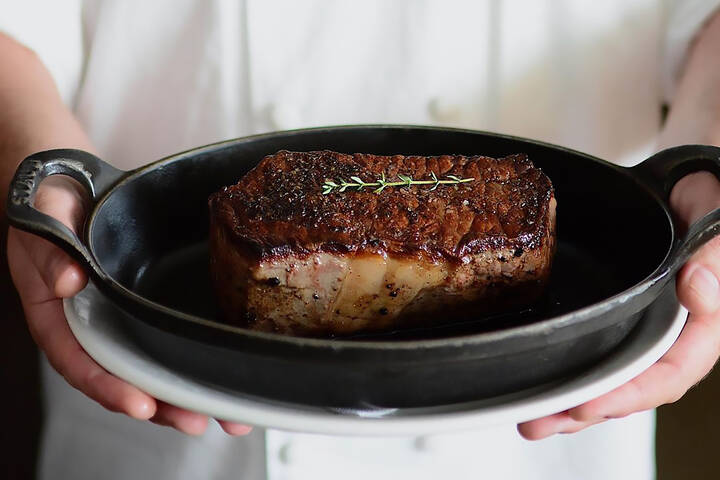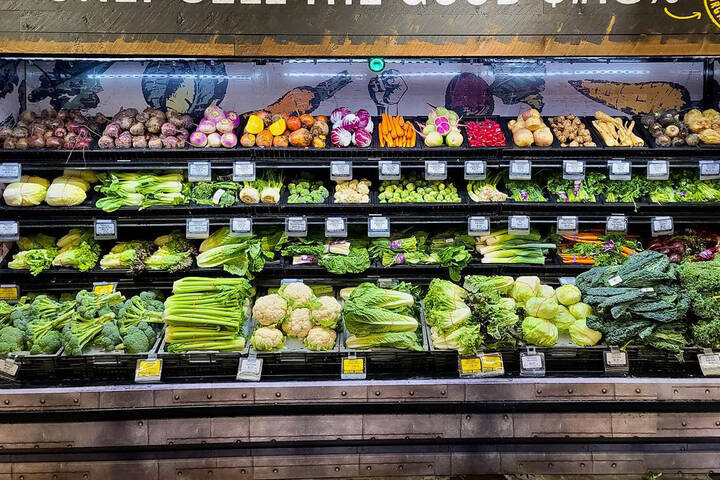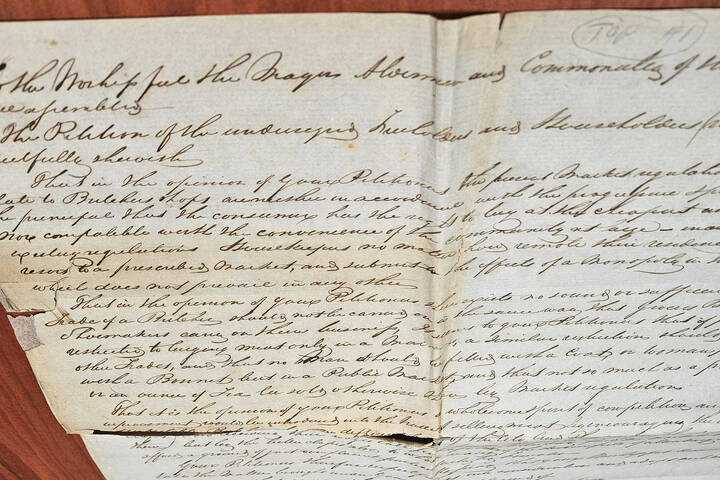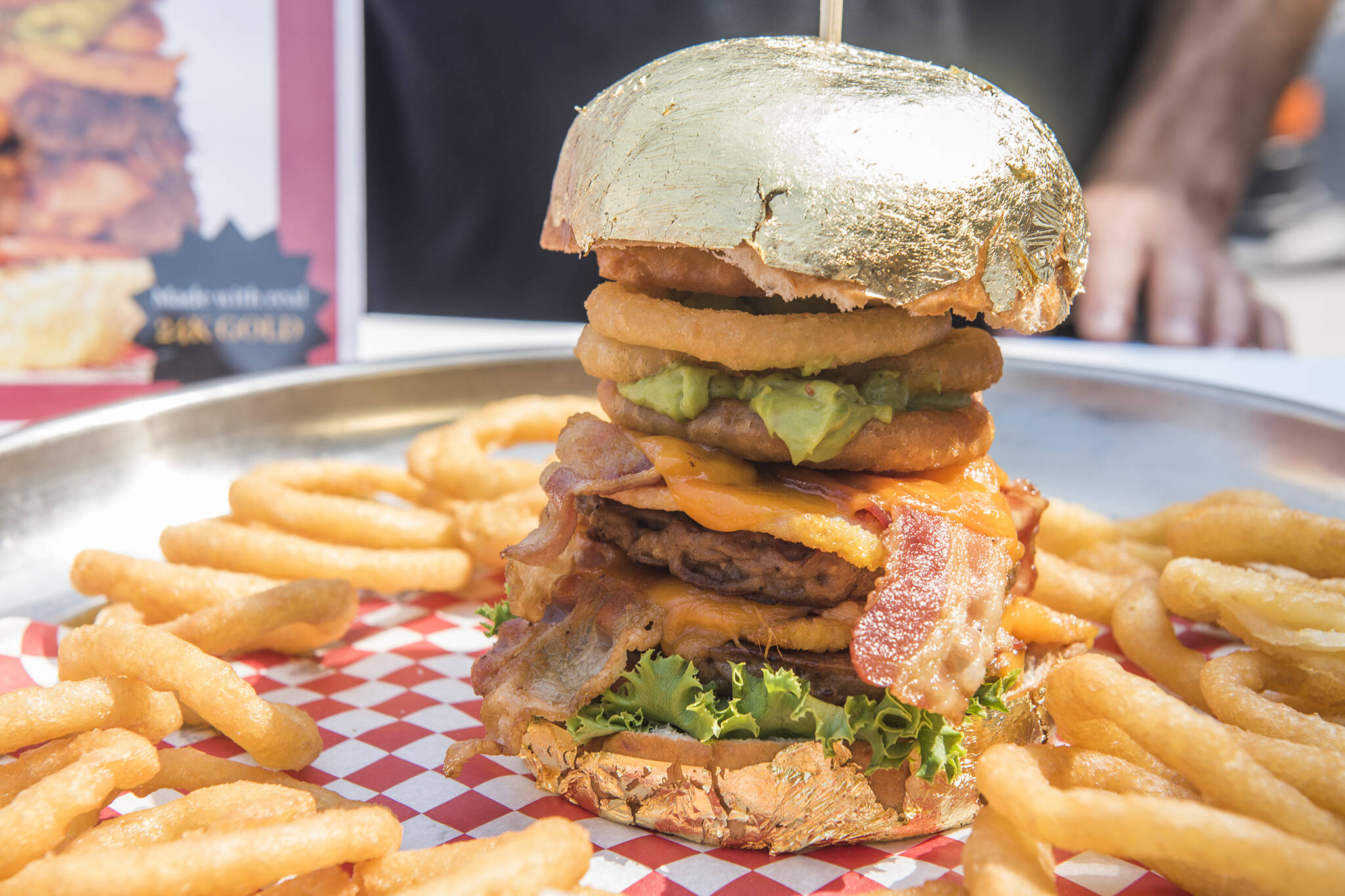
This is how many people have bought the $100 gold burger at the CNE
Not all that glitters is gold, but in the case of this sensational food item at the CNE, maybe it is; a $100 burger covered in gold leaf is being sold, created by Bacon Nation.
It’s hard to say which is more insane, the gold leaf covering the burger’s bun or the $100 price tag. Sticker shock didn’t deter some CNE visitors willing to shell out, though. So far 44 people have bought the full price $100 Gold Burger.
“You come to the CNE to get that one thing that you can’t get anywhere else,” said Andrew Motta (Finance, '09), co-owner of @BaconNationCA. Referring to the $100 burger that has a brioche bun wrapped in 24-karat gold foil! #SheridanProud 🍔👏 https://t.co/JMe03pMaix pic.twitter.com/w3589qZgL8
— Sheridan Alumni (@sheridanalumni) August 21, 2018
They’ve sold over 500 of the smaller $24.95 24K Slider version of the burger, however. Fourty-four people buying the $100 version already amount to $4400, but add $12,475 on top of that for the sliders and you have yourself a decent chunk of change.
I went by #CNE to hear from people who are being locked out of their fairly paid jobs, while inside wealthy visitors can buy $100 gold burgers. It's not hard to see what is wrong with this picture. The city must stand behind workers, not sell them down the river. @iatse58 pic.twitter.com/gXOKY5QKeE
— Sarah Climenhaga (@SarahforMayorTO) August 20, 2018
That’s almost 600 people who have crossed the CNE picket line for a taste of the monstrosity. The irony of selling something so ludicrous for such a high price during a worker lock out hasn’t escaped notice, though.
The burger is one of the most expensive food items ever for sale at the CNE, but although the gold has a priceless look to it, the precious metal has no effect on the taste.
Are 540 burgers and sliders worth the over $15,000 they’ve raked in during the few weeks the CNE’s been open? The only way to really know is to take inventory yourself and see if your bank account (and your morals) could take the hit.
Hector Vasquez
Latest Videos
Latest Videos
Join the conversation Load comments

